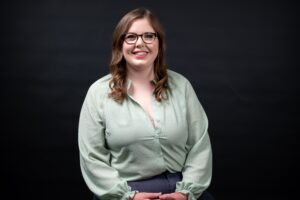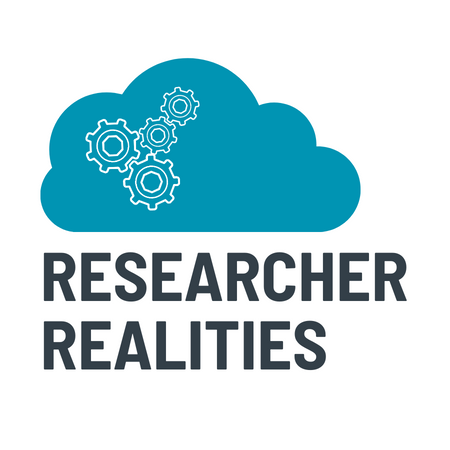
Name: Dr Laura Bickerton
School/College: School of Chemistry
Research Area: Supramolecular Catalysis
Role Name: Postdoctoral Researcher
Webpage/Profile: @LauraEBickerton
What motivated you to pursue your postdoctoral research?
My journey to become a postdoctoral researcher in the school of chemistry here in Edinburgh has not been a traditional one, however, from my time at school as the chemistry ambassador, to my PhD at the University of Oxford, chemistry represents my most challenging yet rewarding passion.
I completed my BSc(Hons) in Biochemistry and Biological Chemistry at the University of Nottingham and for the first 2 1/2 years of my 3 year course I had no idea what career to pursue afterwards. However, having a childhood dream of being a chef, working in the chemistry labs as an undergraduate was amazing. At this point I had no idea what academia was, but I loved practical lab-based research. At the same time, I began attending a Bioinorganic and Coordination Chemistry lecture series taught by Prof. Neil Champness who was particularly inspiring such that I wanted to be involved in this area of research. This led me to email Prof. Paul Beer at the University of Oxford to see if he would accept me into his research group as a master’s student, despite being naïve, I was in luck as he was about to start hosting Prof. Matthew Langton, a newly independent academic who needed a student. I started in 2018 as a master’s student and I left 4 years later with a PhD. I was subsequently motivated to pursue postdoctoral research because even at the end of my PhD I felt like there was so much more I wanted to explore. Additionally, I love the creativity and freedom attributed to academic research.
Has your postdoctoral experience benefited from mentoring? If so, how?
My postdoctoral experience has benefited tremendously from mentoring, not only do I have my past and present PIs as mentors but I also have a mentor in the same field based at another institution who I meet with once a month. Mentoring was particularly useful with the transition from a PhD student to this new role and adapting to working in a new institution with more responsibilities. Sharing knowledge and learning from others is crucial within science; my fellow recipients of the CAS Future Leader award 2022 and I have been writing an editorial piece for ACS central science on Prioritizing Mentorship as Scientific Leaders which will hopefully be online in the near future.
Current mentoring from my PI, Prof. Paul Lusby has facilitated my development as an independent researcher by giving me the confidence and freedom to explore collaborations at another university. Being able come up with ideas and actually follow through with them by making connections myself has been really empowering. Instilling confidence in students and early career researchers is a key aspect of mentoring that can make the difference between someone thriving or giving up.
What is your top tip on how to get the most out of your postdoc?
My top tip on how to get the most out of your postdoc is to have open communication with your PI and ask questions even if you think they are silly. At least in my case this has allowed me to always be clear about the expectations and objectives of a particular project are so that I can execute the job as efficiently as possible. I find it easiest to work on the details of a project while having the big picture in mind, this way I stay on topic with my research rather than going deep into rabbit holes.
How do you connect with other postdoctoral researchers? And what does collegiality mean for you as a postdoc?
There have been so many people involved who have been integral to my career so far which is why collegiality and connecting with other postdoctoral researchers is so important to me. When your working environment is positive and people around you are friendly it can lead to more productive outcomes. Being a on the School of Chemistry’s postdoc committee allows me to help create the sense of community between postdocs within the school via our monthly events in the hope that people can make meaningful connections and bond over their own #PostdocResearcherRealities.


